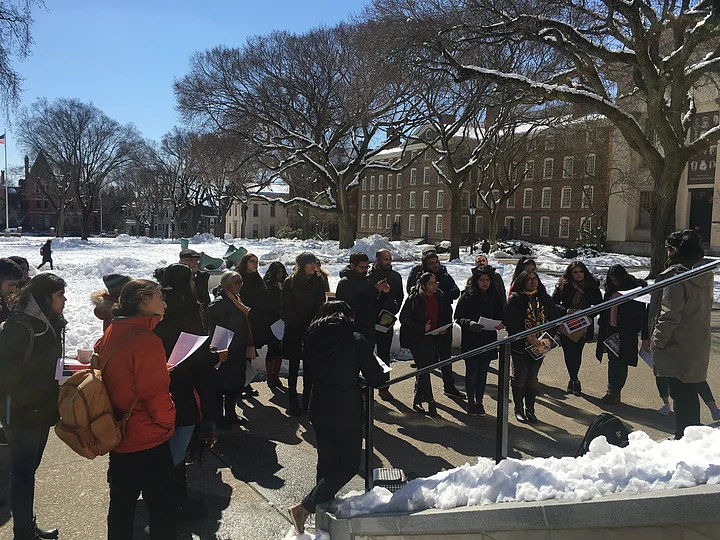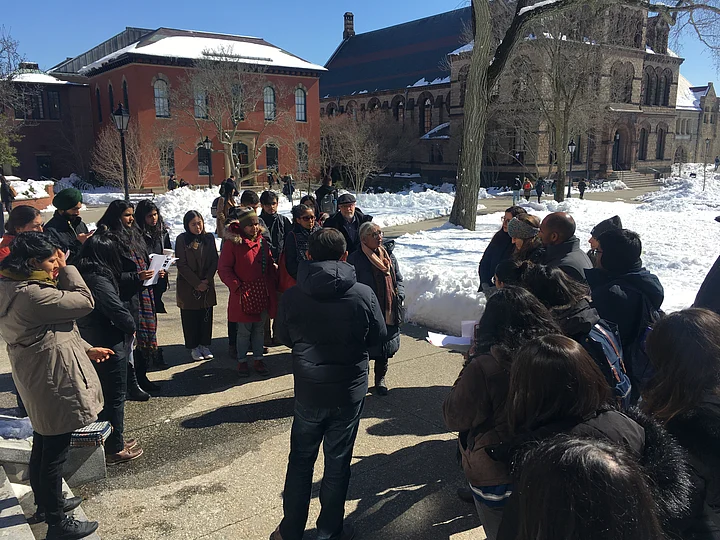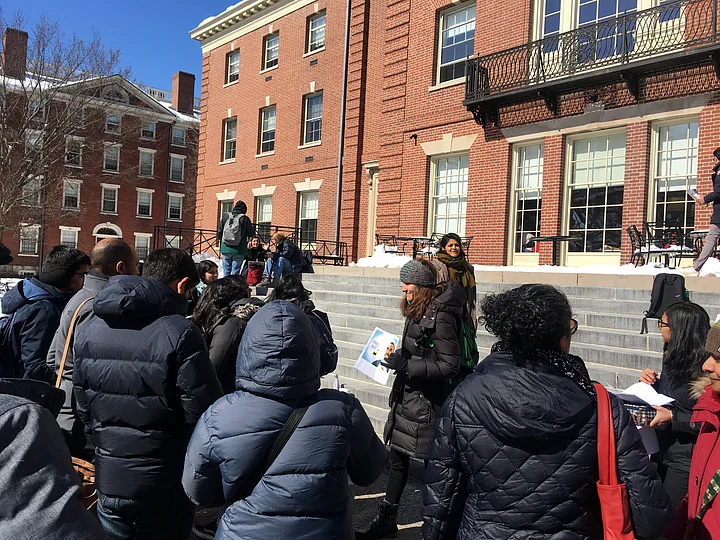“War is not understood by most people.”
The tensions between India and Pakistan may have de-escalated with the return of Indian Air Force Wing Commander Abhinandan but war mongering and jingoism goes on. The two countries must also wage a war against feverish and uncritical nationalist discourse. Perhaps the best weapon one has against this is solidarity.
Indian, Pakistani, and international students from Brown University held a protest in this spirit of solidarity and called for peace in the South Asian region.
The Brown Peace Standout, which was held on 6 March, is a part of the larger initiative called Global Standout for Peace that invites “Indians, Pakistanis, South Asians & allies to STANDOUT & STAND TOGETHER in support of peace in the (South Asian) region.”
‘Peace Too Is Patriotic’: Brown Teachers and Students
The central tenet of the protest was the message of ‘Peace, Not War’ and the students wanted to convey that peace too is patriotic.
Social activist and founder of Mazdoor Kisan Shakti Sangathan (MKSS) (Workers and Peasants Strength Union), Aruna Roy addressed the students gathered at the event. Roy is also a Fellow at Centre for Contemporary South Asia (CCSA) at Brown.
“People don’t understand war but it plays upon the idea of nationalism. I do think that those of us who are from India here should communicate with whomsoever we can back home to change their minds... tell them what it really means in real terms.”Aruna Roy, Social Activist
Poetry and Music for Peace
The Brown Peace Standout was an event filled with poetry and music.
Ahona Palchoudhuri, a PhD Student from the university sang the popular bhajan (prayer song), “Ishwar allah tere naam” in “the hope that good sense prevails over toxic nationalism.”
Another PhD student, Somrita Ganguly read her translation of Satyajit Ray’s song/poem, which he composed for his 1969 movie, Gupi Gain Bagha Bain.
The beginning lines of Ray’s anti-war poem are:
Good grief
Look hard
The men
Are all
Heading
To war
Good lord
Look hard
The soldiers
Are all
Going
To war
The poem and the protest by the students ended on a resonant question, “Why then are you fighting this war and for whom?”
Protests similar to the Brown Peace Standout were also held at the Massachusetts Institute of Technology, the Pasadena Public Library in California, and in Lahore, London, Michigan, and Kochi among other locations around the world.
(At The Quint, we question everything. Play an active role in shaping our journalism by becoming a member today.)



